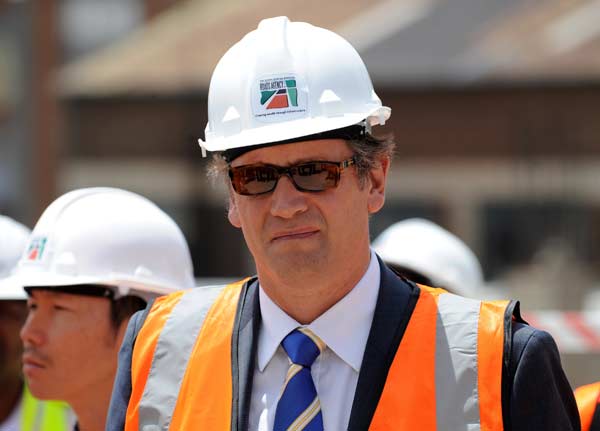Fifa pleased with South Africa progress

Your support helps us to tell the story
From reproductive rights to climate change to Big Tech, The Independent is on the ground when the story is developing. Whether it's investigating the financials of Elon Musk's pro-Trump PAC or producing our latest documentary, 'The A Word', which shines a light on the American women fighting for reproductive rights, we know how important it is to parse out the facts from the messaging.
At such a critical moment in US history, we need reporters on the ground. Your donation allows us to keep sending journalists to speak to both sides of the story.
The Independent is trusted by Americans across the entire political spectrum. And unlike many other quality news outlets, we choose not to lock Americans out of our reporting and analysis with paywalls. We believe quality journalism should be available to everyone, paid for by those who can afford it.
Your support makes all the difference.Football's world governing body Fifa says the question of South Africa not hosting the 2010 World Cup should by now be forgotten.
Speaking during an exclusive update of the tournament at Soccerex '08 in Johannesburg today, Fifa general secretary, Jerome Valcke, pointed out there were still some issues to be resolved ahead of the first-ever global showpiece on the African continent, but the general feeling was positive.
"I think we should forget this question now," responded Valcke when he was asked about the possibility of another country stepping in.
"It's been a lot of work since May 2004 and I think there is still a lot of work until June 14, 2009 and the World Cup 2010.
"I think it's a lot of issues and we have to make sure we are working on them all the time. The main issues are security, transportation, accommodation, overlay; it's all what you need to host a World Cup.
"It's normal, because there is not a single country ready 18 months prior to the World Cup. When we had the Confederations Cup in Germany, it's where we discovered that lots of things were not working.
"There is no question that it was the right decision to bring the World Cup to South Africa."
Danny Jordaan, the CEO of the Local Organising Committee (LOC), who was on a three-man panel along with Valcke and Horst Schmidt, a consultant for the 2010 World Cup, added that his country had entitled problems, but they were trying to rectify them on an ongoing basis.
"Firstly, we are focusing on the Confederations Cup," he said. "These are existing stadiums, however there is still a gap between the existing stadiums and the event requirements.
"So we are focusing on that to make sure that by the end of December, all of the four stadiums for the Confederations Cup are fully compliant with all requirements for the event.
"Beyond that we have to go back to make sure of two issues, one the cost of the economic crisis that we have, the 10 per cent cost increase that we do expect, we have to deal with that issue.
"And then make sure all of the stadiums are complete by October next year and also then to focus on the final draw on December 4 next year.
"It is a complex overall project where the issues that you have to deal with on an emergency basis will shift from time to time.
"It maybe money, it may be a particular stadium, perhaps personnel, so we have to just focus, look at all the positives and make sure that you remain on track."
Casting his eye beyond 2010 and 2014, which will be hosted by Brazil, Valcke hinted that the 2018 tournament could well be given to a "rich" country from the first world.
He added: "I have a feeling that Germany tomorrow morning could host the World Cup. Because they have a very strong professional league, stadiums are ready, so there are a few European countries for sure will not have to spend as much money as South Africa is doing or as Brazil will have to do because there is not a single, what we call, World Cup stadium in Brazil.
"And they will have to provide us with these stadiums and work on them. Again, I have the feeling that there will be competition, I would say between five to eight countries, bidding for 2018.
"These will come from four confederations as Africa and South America will not have access to 2018. It will be potentially the so called rich countries, where there are already the infrastructure we need to host a World Cup."
Join our commenting forum
Join thought-provoking conversations, follow other Independent readers and see their replies
Comments